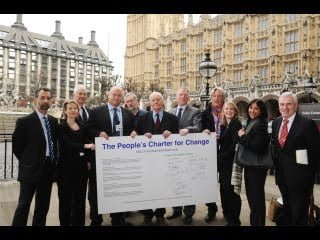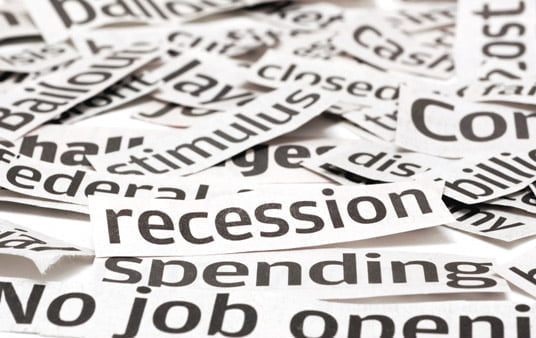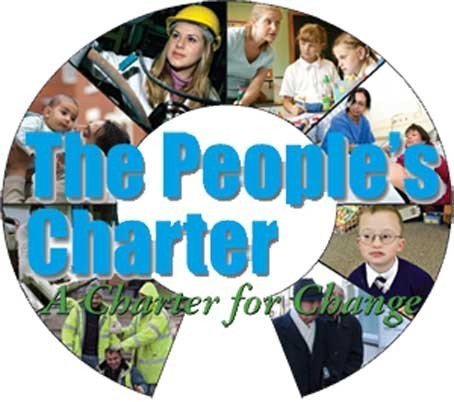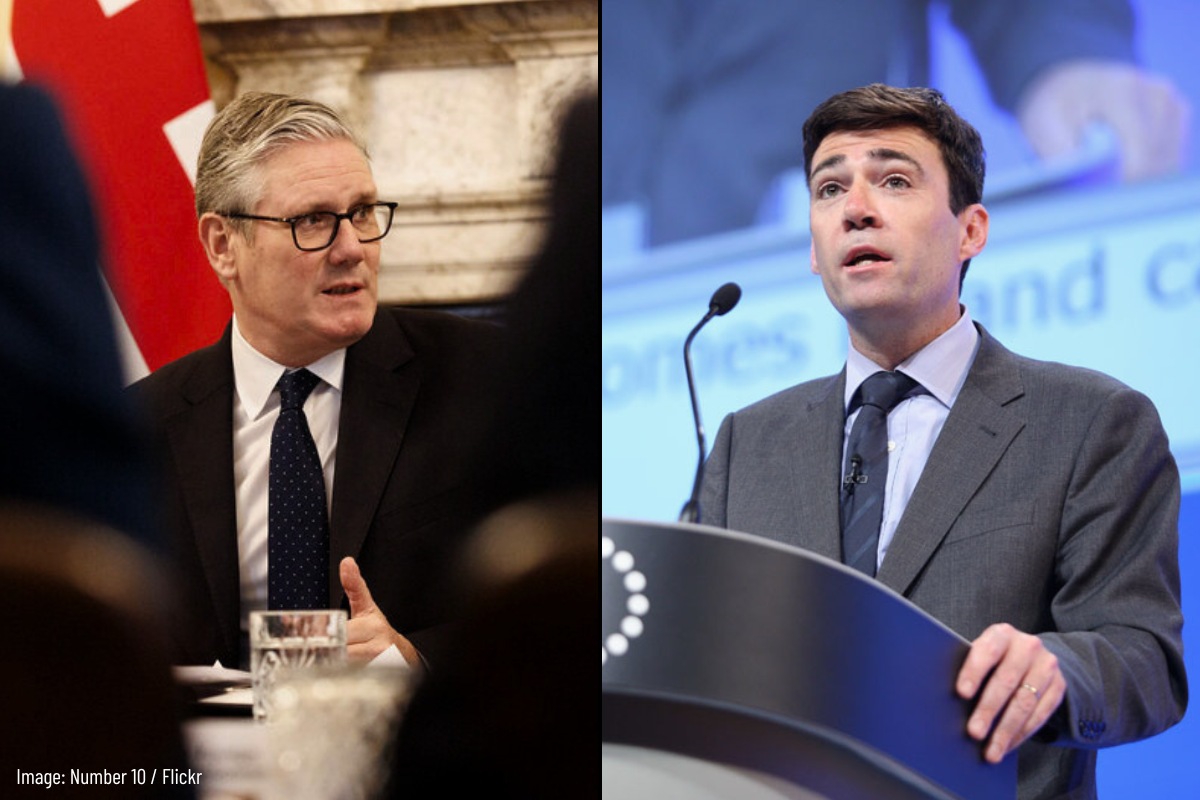At
its July meeting, Coventry TUC joined labour and trade union
organisations from around the country in giving support to the demands of
the People’s Charter which was launched in March at the House of Commons. The launch had been preceded by EDM 942
on March 2
supported by 35 MPs. On the same day, a letter supporting the Charter
appeared in the Guardian signed by leading figures in the labour and
trade union movement, including many trade union general secretaries.
The
organisers and promoters of the Charter are now seeking to get one
million signatures supporting a list of demands that cannot be
changed. You sign or don’t sign. The Charter’s instigators, in
the main activists from the RMT and the Communist Party, hope that
the implementation of the Charter’s demands will go some way to
ensuring that the burden of the present economic crisis will not be
borne by working people.
(click here to visit the Charter website)
All
activists in the movement would agree with such a sentiment and
therefore the Charter has to be welcomed as a
serious and genuine contribution to the discussion on the way forward
to put an end to the misery for working people caused by the present
economic crisis. This opens up the possibility of a thorough
discussion at all levels of the labour and trade union movement. What
follows is an initial contribution to such a discussion that
concentrates on the first demand of the Charter. An analysis covering
the other demands will appear in later months.
It
is no accident that the Charter contains six demands echoing the six
of the original Charter of 1838 that gave rise to the movement of
Chartism.
Introduction
 The
The
preamble to the Charter states the following; “Britain is in the
grip of an economic crisis. So is the world. Every time there is a
slump the politicians and financiers seem mystified as to how the
system has failed. But boom and bust is the way it works. It’s not
stable.” We would agree with this statement. But why is the system,
and let’s call it by its real name of capitalism, unstable? The
Charter states that “banks, corporations and speculators gamble
other people’s money in their global casino” and when the bubble
bursts we pay the price in job losses as well as direct and indirect
cuts in our living standards. But why does this happen? The Charter
believes that the reason for all of this is that the perpetrators of
the crisis are “driven only by greed."
As
Marxists we recognise that people’s personal predilections can make
a system worse, but the cause of the crisis is not found in personal
habits but within the contradictions of capitalism itself. Each crisis can
have a multitude of causes that interact with each other. The present
one is mainly a result of a market being expanded beyond its natural
limits by the recent phenomenal growth in credit, in the main for
house purchases leading to house price inflation, with banks lending
money they did not have, a phenomenon that Marx called fictitious
capital.
In
the main workers did not benefit from the boom before the slump but
were squeezed mercilessly by the bosses. Wealth travelled from the
poorest sections of society to the richest! And this had implications
for the level of demand, purchasing power, in the economy. We saw a
situation of capitalist overproduction where the goods that were
produced could increasingly not be bought so factories closed,
workers lost their jobs and the market was cut even further. However,
the main contradiction of capitalism, the struggle over surplus
value, the class struggle, is not mentioned. Neither is the fact that
capitalist society is a class society and that at bottom people’s
actions are driven by their material interests. The Charter however
believes that the fault lies at an individual level, the “greed”
of individuals. Right
from the outset therefore we believe that an incorrect analysis leads
to incorrect conclusions.
The
Demands of the People’s Charter.
The
demands constitute a list of aims which the promoters hope would, if
implemented, ensure that workers do not pay the price of the crisis.
Aims or demands however are only part of a programme. Just as
important are the methods for achieving those aims and the people in
organisations who are to fight to achieve those aims. The
demands however limit themselves to aims and remain therefore at the
level of aspirations without saying how they are going to be
achieved.
"A
Fair Economy for a Fairer Britain."
This is the first main demand of the Charter and within the demand
there are a number of concrete steps that should be taken. Nobody
could disagree with the need for a fairer Britain, not even Liberals
and Tories. But what does it mean? It implies that Britain is unfair,
but how and why is it unfair? For Marxists “unfairness” stems
from the fact that we live in a capitalist society, a class society,
and that those who produce wealth through selling their labour power
do not receive the full value of that wealth. The surplus value is
creamed off by the owners of the means of production, the
capitalists. Each aspect of unfairness such as the unequal ownership
of wealth, income, economic and political power, educational
opportunity and so on stems from this exploitation. Until social
production is socially owned and the value created belongs to all in
society, until we get social ownership of the means of creating
value, this “unfairness” will continue. In modern parlance this
means public ownership of the means of production, the banks,
insurance companies and land under democratic workers’ control and
management. This is the only way to ensure that “fairness” is
achieved.
"Take
the leading banking, insurance and mortgage industries
fully into democratic public ownership run for the benefit of all.”
We agree. But why only the “leading” ones and which ones are
they? What about other sources of finance. Are we to have a dual
system operating side by side, a state system and a private system?
What is meant by democratic public ownership? Are these NATIONALISED
industries to be run by elected boards? If so, who elects them and by
what method? How are these industries to be nationalised? Is this a
demand to be carried out by a labour government or by the trade union
movement acting politically by standing candidates in a general
election and hoping to form a government? Or are the demands to be
achieved by a new workers’ party that has gained sufficient support
to form a government? Unless
these demands are placed on someone to be carried out by someone they
remain at the level of vague aims.
"Regain
control of the Bank of England and keep interest rates low.”
Is this a demand for the Labour Government to take back control from
the arms-length Monetary Policy Committee that has been setting
interest rates? But the MPC has been keeping interest rates low in
the hope of stemming inflation and stimulating demand. Is the Charter
therefore calling for state control of finance so that investment can
be planned to satisfy people’s needs and not where the greatest
profit can be made for a few individuals? Does this demand echo the
demand of Marx and Engels in the 1848 Communist Manifesto for a
“centralisation of credit in the banks of the state, by means of a
national bank with State capital and an exclusive monopoly”? If
there were a demand for the Bank of England to be the financial lever
of government policy and if that government were a socialist
government, then the demand would be correct. However, the next
statement in the Charter shows that this is not the case.
"Tightly
regulate the City markets to facilitate lending and to stop
speculation and takeovers against the public interest.”
The Charter wants the tiger to stop behaving like a tiger. It wants
the capitalists to be controlled – by the capitalists and their
political representatives. It believes that “regulation” can
achieve this. Whilst it is true that the relaxation of banking
regulations under Chancellor Gordon Brown contributed to the orgy of
recent speculation, it was not the main cause as shown above. What is
meant by public interest? Is it the same as national interest where
we are fighting a war in Afghanistan in the name of our national
interest? National interest means the interests of the capitalist
class which owns the nation. Who determines what the public interest
is? Secrets are kept by the state, the executive committee for
managing the affairs of the capitalist class as a whole, in the name
of the “public interest”. In other words those who own and
control society determine what the public interest is. The main
question however is that if we have state control of finance within a
planned system of economic growth, why do we need a stock exchange
and city markets?
"Ban
hedge funds, raids on pension funds, asset-stripping and corporate
tax loopholes."
Restructure
the tax system so big business and the wealthy pay more and ordinary
people pay less - again a very worthy aim. The problem is that the rich in Britain,
the capitalists, financiers and landowners, have had centuries of
practice and experience in how to avoid paying their just taxes. They
employ an army of accountants and lawyers to ensure that the wealth
they have swindled from the labour of “ordinary people” remain
sacrosanct. The TUC has calculated that the rich manage to avoid
paying taxes each year to the value of up to £85 billion. Each
time attempts are made by governments to try and ensure taxes are
paid by all, the rich get their hirelings to invent new methods to
circumvent the new law. Even worse, they also try to blackmail the
government by threatening to move from Britain and take their “wealth
creating activities” with them. Philip Green of BHS lives in
Monaco, flies into Britain for two or three days “work” each week
and flies out again. He pays virtually no tax. And don’t forget
that we have a government that is relaxed about people getting filthy
rich. Fiddling with the tax system will not make the rich pay more
and the poor less. Let us repeat once again. If the system for
creating wealth is socially owned, then the value created will be
owned by society that will determine through its own democratic
institutions how that wealth is to be distributed. Tinkering with the
tax system will not achieve the ends that the supporters of the
Charter desire.
 But,
But,
it will be argued, the Charter does not wish to end capitalism,
merely to make it “fairer.” Such a desire is noble but is at
bottom a complete failure to understand how capitalism works. The old
saying is that you can peel an onion layer by layer and it will make
you cry. If you attempt to control a tiger by removing one claw after
another, you will be devoured.
Perhaps
the modern day “Chartists” see their demands as a step towards
firstly creating a more responsible and therefore controlled
capitalist system before moving on to fighting to create a fairer
society which can only be achieved under socialism. If this is so, it
is a rehash of the discredited two-stage theory from the 1920s and
1930s where it was promulgated that a healthy and more just
capitalist system could be developed as a stage in the development
towards socialism.
Then,
but even more today, capitalism has entered its period of senility
and cannot be reformed. It has to be done away with and that should
be the task of all socialists and communists, not to tinker with a
system but to change it.
We
stand by the position outlined by Lenin in December 1917 when he
said, “The
banks, as we know, are centres of modern economic life, the principal
nerve centres of the whole capitalist economic system. To talk about
"regulating economic life" and yet evade the question of
the nationalisation of the banks means either betraying the most
profound ignorance or deceiving the "common people" by
florid words and grandiloquent promises with the deliberate intention
of not fulfilling these promises.”






